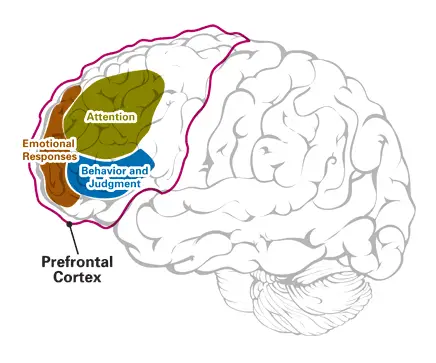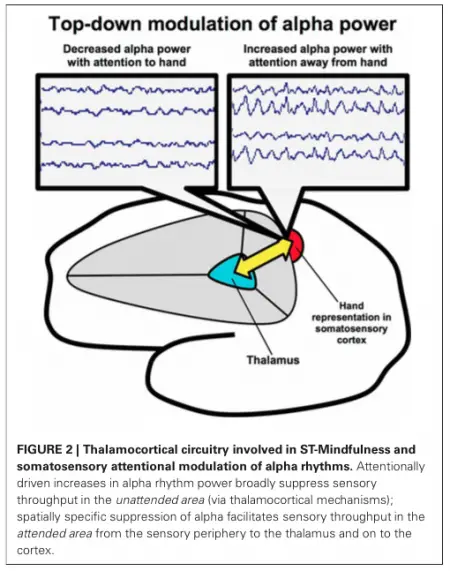Our brain is quite complicated. It is constantly going through extremely complex processing to achieve many different outputs (movement, speech, vision, thoughts, emotion, pain, allostasis, etc.).
STRESS is one of the most influential factors on our brain’s ability to process efficiently. And in today’s society everyone has had it, many people live in it, and some people can never escape it.
Stress an epidemic and it will likely get worse with time.
- “Stress-related ailments cost the United States an estimated $300 billion per year in medical bills and lost productivity, and our usage of sedative drugs has shot off the charts: between 1997 and 2004, Americans more than doubled their yearly spending on antianxiety medications like Xanax and Valium, from $900 million to $2.1 billion. And as the psychologist and anxiety specialist Robert Leahy has pointed out, the seeds of modern worry get planted early. “The average high school kid today has the same level of anxiety as the average psychiatric patient in the early 1950s,” he writes. Security and modernity haven’t brought us calm; they’ve somehow put us out of touch with how to handle our fears” | Excerpt From: Clark, Taylor. “Nerve.”
Fortunately, this situation can be improved with mindfulness.
But first, it is important to understand why stress is a problem for the brain.
The Problem = Stress
Arnsten, Amy F. T. “Stress Signalling Pathways That Impair Prefrontal Cortex Structure and Function.” Nature Reviews Neuroscience Nat Rev Neurosci 10.6 (2009): 410-22
- “Stress impairs higher-order PFC (Prefrontal Cortex) abilities such as working memory and attention regulation. Thus, attention regulation switches from thoughtful ‘top-down’ control by the PFC that is based on what is most relevant to the task at hand to ‘bottom-up’ control by the sensory cortices, whereby the salience of the stimulus (for example, whether it is brightly coloured, loud or moving) captures our attention.”
Stress clogs up the brain’s processing ability. It creates excessive noise (e.g. increased alpha power) and disrupts the system’s ability to process normal sensory information (among other things).

Major functions of the Prefrontal Cortex
The Solution = Mindfulness
Kerr, Catherine E., Matthew D. Sacchet, Sara W. Lazaret al. “Mindfulness Starts with the Body: Somatosensory Attention and Top-down Modulation of Cortical Alpha Rhythms in Mindfulness Meditation.” Front. Hum. Neurosci. Frontiers in Human Neuroscience 7 (2013)
- “Higher-order cognitive processes including selective attention and working memory are enabled by the basic ability to filter irrelevant sensory information while focusing on relevant information”
- “Localized attention to body sensations enables subsequent gains in emotional and cognitive regulation by enhancing sensory information processing in the brain”
Mindfulness practice of specific internal sensations (e.g. body scan) helps to modulate the noise in the system (improved alpha power regulation) and promotes improved sensory information processing.

How attention focus can modulate the alpha power and decrease the system’s noise levels (article)
An Analogy – Your Brain as a Concert
Let’s consider the brain as the concert venue and the people as the different parts of the brain.
When you have stress the concert venue (brain) becomes a loud rock show in a small club. You can’t really hear anything else that’s going on (increased alpha power). You can’t communicate with anyone without shouting (why you only feel pain and discomfort when you’re stressed). You can barely move. People keep bumping through because they “know someone up front” (poor attention). That guy that’s crowd surfing kicks you in the head. Someone spills their drink down your back. You can’t see the stage because some idiot in front of you is trying to film it with his iPhone. And it’s just a matter of time before someone starts to yell out something no one wants to hear – “freebird!”.
Needless to say, this is not the best environment for communicating and organizing plans.
In contrast, when you focus on the present sensations within your body the concert venue (brain) becomes a calm symphony concert at an outdoor amphitheater. Everyone has space. It’s not too loud, you can have a conversation with the person next to you (decreased alpha power). You can easily walk over to the other side of the venue (attention regulation). You can not only the stage, but the rest of the venue as well. And no one is shouting anything you don’t want to hear.
Don’t get me wrong, I love going to rock shows just as much as anyone else.
It’s important to make sure the noise comes from the Marshall Stacks and not from inside your head.

Stress turns your brain into a loud rock show. Mindfulness turns your brain into an outdoor symphony.
Conclusion
Unfortunately telling people to quit their jobs, stop paying their mortgage, and hire a nanny are not realistic. Some people will not be able to modify their lifestyle and will continue to have high stress levels.
So what do you do about this?
The same thing you would do for someone that has a structural dysfunction that you can’t change. You give them an exercise to help strengthen the system and improve resilience.
For these overly stressed individuals this can be anything from a simple body scan meditation to an hour long Qi-Gong class. It doesn’t have to turn them into a vegan hippie, it just has to bring their attention focus to their body. It has to bring them back to their internal sensations.
- “If you are depressed you are living in the past. If you are anxious you are living in the future. If you are at peace you are living in the present.” ― Lao Tzu
There is nothing more present than your own body and breath, right now.
*There are many apps, websites, and albums with mindfulness practice. I’ve put together a playlist of some of the free body scan meditations below. Feel free to leave your favorite meditation app or track in the comments.


